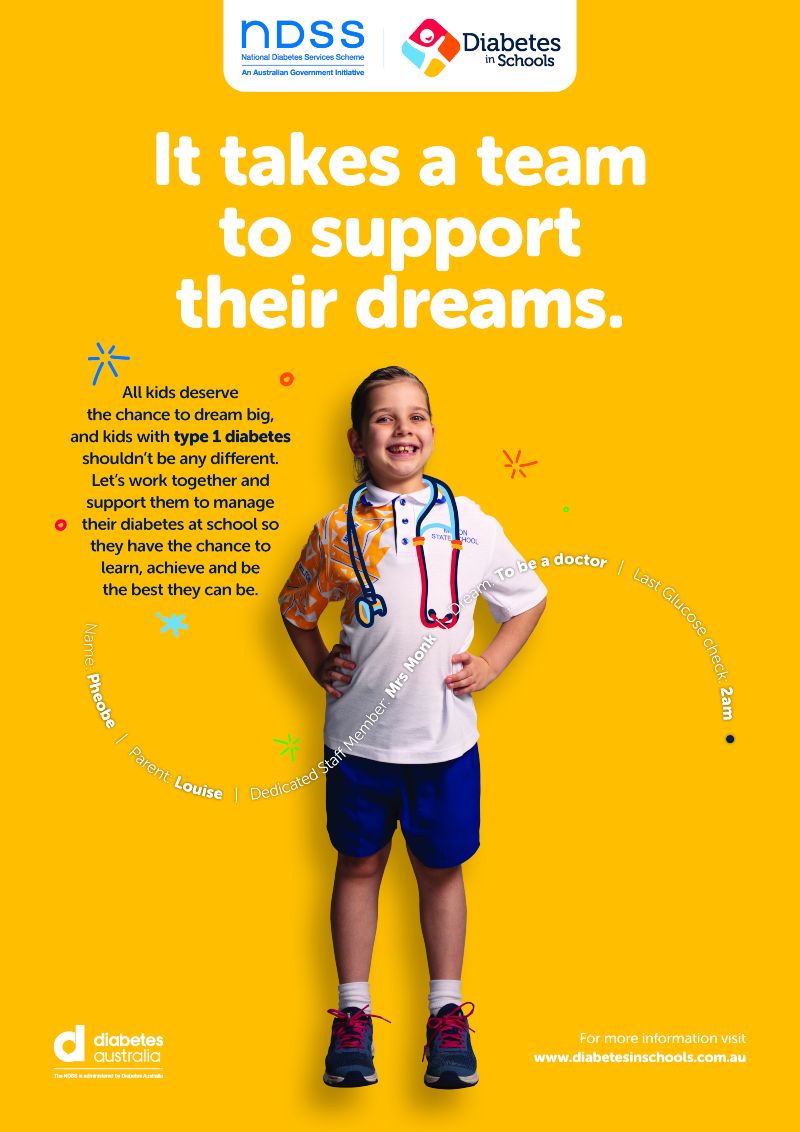Case Study: Training your staff
Phoebe has lived with type 1 diabetes for just over one year and is in her last year of primary school. All the staff know her well and understand the basics of type 1 diabetes, however Phoebe has not needed insulin at school. This term the family has contacted you to discuss extra support for Phoebe as she will be changing her insulin treatment and will need to have insulin every day with lunch. The parents both work full time and are unable to come in to inject every day. They are keen for Phoebe to do her own insulin later in the year before moving to high school.
While investigating the training on offer from the Diabetes in Schools program, the principal is reminded that all staff have a duty of care to keep Phoebe safe and all staff require Diabetes in Schools Level 1 Introductory training.
There are a few teachers that directly supervise Phoebe but are not the designated staff members to assist Phoebe with insulin administration. This group of teachers will benefit from the Level 2 Intermediate training to better understand daily glucose monitoring, the effect of low or high glucose on her mood and the ability to learn. This level of training also covers the basics of insulin, exercise and the impact of changes to routine on her type 1 diabetes.
The principal and family have come up with an agreed plan where at least two designated staff members will complete Level 3 Individualised Skills training to initially provide insulin administration for Phoebe until she becomes more independent. As Phoebe takes on more tasks around insulin administration the Level 3 trained staff will still be there to supervise and support Phoebe’s lunch time injections.




